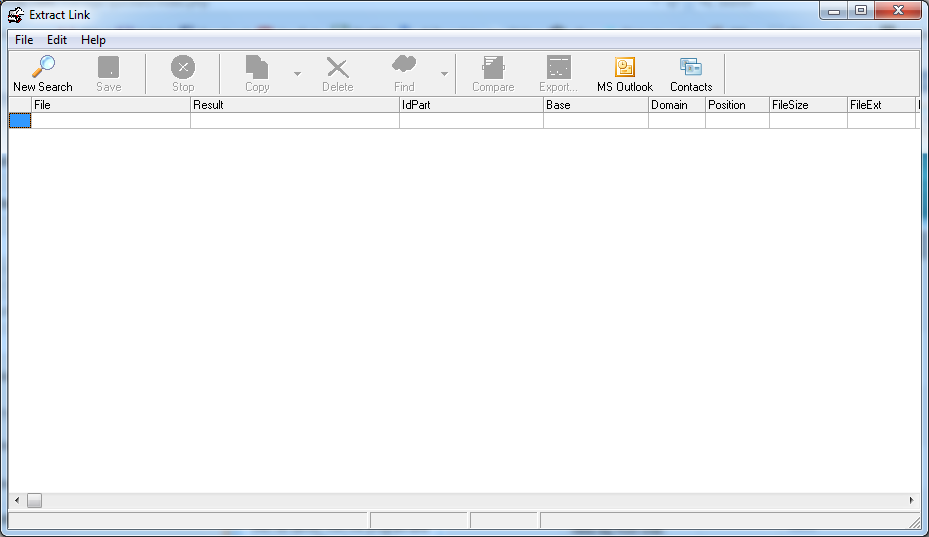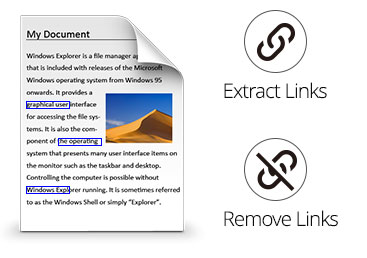
With open("path\url_example. Now, when we take the above input file and process it through the following program we get the required output whihc gives only the URLs extracted from the file.

You can visit a good e-learning site like - to learn further on a variety of subjects. But if you are completely new to computers or internet then first you need to leanr those fundamentals. Extract URLs from a sitemap with Screaming Frog Wait a bit, select the text appearing in the window (CMD+A or CTR+A to select everything) and copy it (CMD+C or. Now a days you can learn almost anything by just visiting. The findall()function is used to find all instances matching with the regular expression. We can take a input file containig some URLs and process it thorugh the following program to extract the URLs. Only the re module is used for this purpose. The expression fetches the text wherever it matches the pattern. You even can use XPath in a puppeteer javascript script const puppeteer = require('puppeteer') Īwait tViewport() Ĭonst xpath_expression = page.waitForXPath(xpath_expression) Ĭonst links = await page.$x(xpath_expression) Ĭonst link_urls = await page.evaluate((.URL extraction is achieved from a text file by using regular expression. Xmlstarlet sel -t -v - # parse the stream with XPath expression Xmlstarlet format -H - 2>/dev/null | # convert broken HTML to HTML Also extracts embedded, referrer-type links in the format.

^M is Control+v Enter xmlstarlet: curl -Ls | Extracts all links from web page, sorts them, removes duplicates, and displays them in a new tab for copy and paste into other systems. Or a xpath & network aware tool like xidel or saxon-lint: xidel -se (Written by Andy Lester, the author of ack and more.) This comes with the package www-mechanize-perl (Debian based distro). Instead, use a proper parser: mech-dump mech-dump -links -absolute -agent-alias='Linux Mozilla' Parsing HTML with regex is a regular discussion: this is a bad idea. I am in no way recommending regex for parsing HTML, unless you know what you're doing or have very limited needs (eg: only want links), like in this case. P.S.(2): You should, if you want to make use of a better way to parse HTML, instead of using my solution above (which doesn't handle every corner case, given the lack of an HTML example/sample) use the better answer from Gilles Quenot that is more fit for general (eg: complete) and more optimized support of HTML syntaxes. P.S.: This may or may not be obvious, but this also doesn't take into account links/URLs that are generated dynamically (eg: PHP, JS, etc) since curl mostly works on static links.


Given you can't/don't show an example of said structure or the webpage itself, it is difficult to make an answer that works on it, unless more HTML knowledge was involved. Thus certain knowledge of the webpage structure or HTML is required. Lastly, this does not take into account every possible way a link is displayed. If you want to remove that, make/use sed or something else like so:Ĭurl -f -L URL | grep -Eo "https?://\S+?\"" | sed 's/&.*//' 51K Announcement: We just launched Online Unicode Tools a collection of browser-based Unicode utilities.
Extract all links from page full#
This does not take into account links that aren't "full" or basically are what I call "half a link", where only a part of the full link is shown.Or curl -f -L URL | grep -Eo '"(http|https)://*"' This should do it: curl -f -L URL | grep -Eo "https?://\S+?\"" Warning: Using regex for parsing HTML in most cases (if not all) is bad, so proceed at your own discretion.


 0 kommentar(er)
0 kommentar(er)
